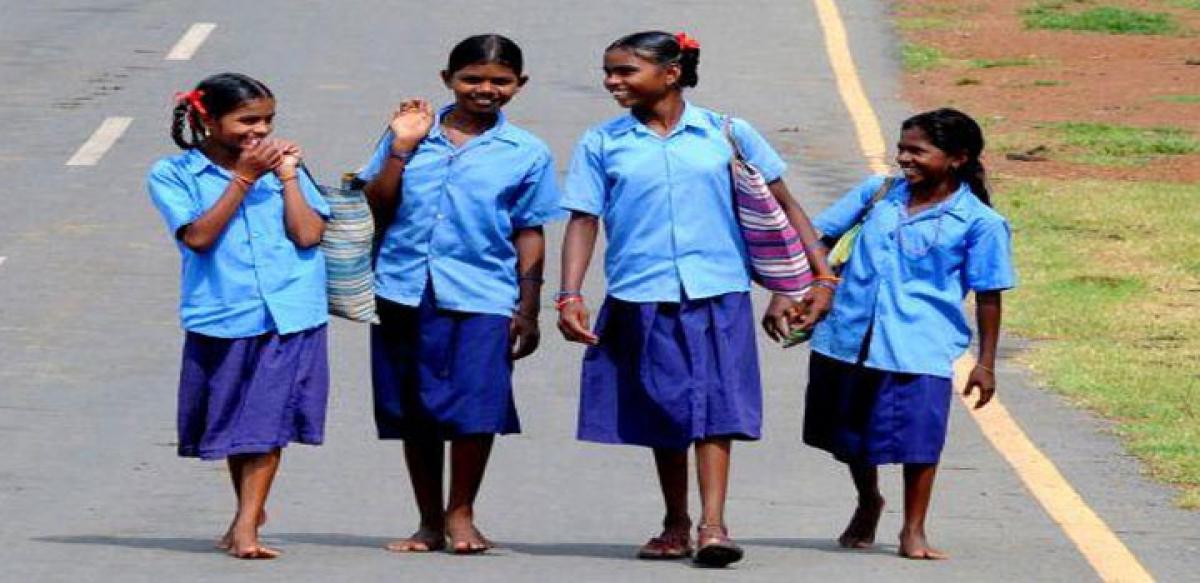Live
- ‘Get Set, Grow Summit 2024’ Focuses on Digital Detox for Families
- Stokes motivates his team to put in extra effort, says England pacer Potts
- From overcoming setbacks to leading India in U19 Women’s Asia Cup, Niki Prasad's amazing journey
- Driving Enterprise Security: Inside Venkata Reddy Thummala’s Leadership Journey
- Constitution debate: PM Modi hails 'Nari Shakti'; makes strong pitch for 'United Bharat’
- Abhijeet Bhardwaj: Revolutionizing Enterprise Analytics with Innovation and Expertise
- Bihar: Inquiry initiated against principal who went to buy veggies during school hours
- Press Sri Lankan Prez for release of Indian fishermen: TN Cong MP to EAM Jaishankar
- TN: DMK postpones executive meet due to heavy rains & Parliament session
- Porous silicon oxide electrodes can fix durability issues in batteries: Researchers
Just In

Even as we celebrate the status of the girl child we hear of a ghastly incidents of a girl (all of six years) being raped in Delhi.The post Nirbhaya scenario has clearly shown that death penalty is a poor index to reduce a crime. The present issue is not so much about the death sentence as it is about the girl child.
.jpg)
Even as we celebrate the status of the girl child we hear of a ghastly incidents of a girl (all of six years) being raped in Delhi.
The post Nirbhaya scenario has clearly shown that death penalty is a poor index to reduce a crime. The present issue is not so much about the death sentence as it is about the girl child.
It is alarming when we see figures that reflect a very poor picture of the girl child. She continues to be the subject of state orchestrated celebrations and seeming attention. Figures, however, tell a different and tragic story.
Here are some embarrassing banners: 53 per cent of girls in the age group 5 to 9 years are illiterate; one out of six girl child dies due to gender discrimination;
reports estimate that more than 50 per cent of girls in India fail to enrol in school and those who do are likely to drop out by the age of 12.
Figures also report that there is discrimination even in the field of higher education. At least a 40 per cent of girls are not allowed to pursue higher studies,
due to the conservative familial ideologies; one out of four girls is sexually abused before the age of four; 25 per cent of the victims of commercial sexual exploitation in India are below 18 years; female infants experienced a higher mortality rate than male infants in all major states.
Six decades after we made our tryst with destiny while the daughter of the author of the rhetorical statement may have made to the highest political office in the country,
but was paradoxically referred to as the only man in her cabinet! The Right to Education Act is the stated collective intent of the country and when the common man fails the law,
the law enforcing agencies are up and ready to take punitive action. It is a visible tragedy that even today most parents in India who can afford quality education prefer to send their children to private schools instead of government schools.
We must not forget that the constitution provides for the Right to Education as a fundamental right. Interestingly the only added fundamental right to our original constitution:
The state shall provide free and compulsory education to all children of the age of six to sixteen years in such manner as the State may by law determine.“
In a recent development, a two judge bench of the High Court comprising acting Chief Justice Dilip Bhosale and Justice SV Bhatt have taken on file a writ plea on the condition of schools in the state.
They were reacting, thankfully with a human face, and have not been bowed down by technicalities. The concern for the girl child while taking the writ on file was discernible.
The bench has taken Kurnool district for a beginning and has made clear that this is but the beginning.
It is sad as the bench noticed that girl schools in the district do not have proper toilet facilities. I would think that to have a toilet for a child is more than a right associated with the right to education; it is a human right.
While we debate GNP and campaign for this or that party to rule us for five years and more, do we realise we are a collective that looks the other way when children do not go to school or when they do they do not have proper toilets?
What Swatch Bharat are we talking about? As we in Urban India debate food habits and plays, when we discuss liberal economics and sociology,
let us spare a thought for the child who may not go to school because there is no toilet or worse sometimes any water.
Salutation to the girl child, if she survives all this. Hopefully, the High Court will not lose steam and make an impact on the road ahead. History does not throw too many such opportunities. Over to the judicial statesman.
By:L Ravichander

© 2024 Hyderabad Media House Limited/The Hans India. All rights reserved. Powered by hocalwire.com







